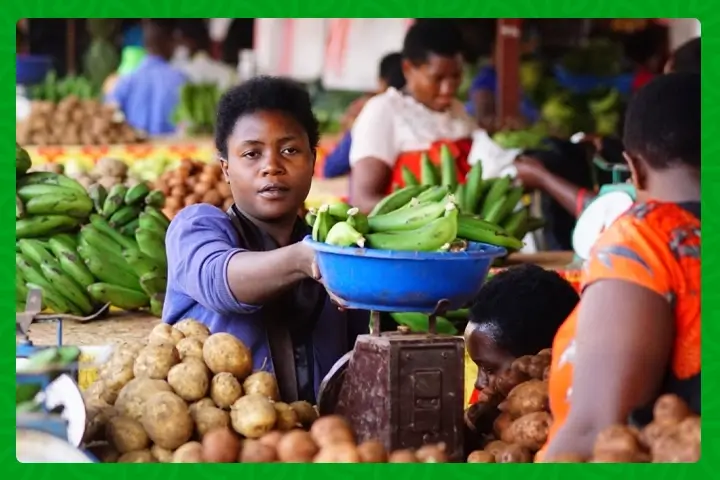
In a promising turn of events, Rwanda is celebrating a significant milestone as consumer prices on its market decelerated to 6.4 percent in December 2023, a notable drop from the same period in 2022. This achievement, reported by the National Institute of Statistics Rwanda (NISR), marks a pivotal moment as the country witnesses inflation figures aligning with the National Bank of Rwanda’s target range of 2 percent to 8 percent. Let’s delve into the details and explore the factors contributing to this positive economic shift.
Breaking Down the Numbers:
The latest data from NISR, released on January 10, not only reveals a 6.4 percent decrease in consumer prices compared to December 2022 but also underscores the annual average inflation between December 2023 and December 2022, standing at 14 percent. This is the first time in nearly two years that Rwanda has experienced inflation within the central bank’s target range, a testament to the effectiveness of various measures implemented to curb inflationary pressures.
Eugene Kajigija, NISR’s Manager of Economic Statistics, expressed optimism about the ongoing trend, stating, “We can expect the decelerating trend to be sustained throughout January and February [2024], especially with the ongoing harvest of food crops, a significant factor in inflation calculations.”
Key Drivers of the Deceleration:
Inflation, reflecting the pace at which consumable prices increase on the market, witnessed a peak of 21.7 percent in November 2022. Since the beginning of 2023, a decelerating trend has been observed, attributed to government measures, despite persistent challenges in agriculture performance over two consecutive years. Notable changes in various sectors include a decline in bread and cereal prices by 0.6 percent, a rise in transportation costs by 6.7 percent, and an increase in prices in restaurants and hotels by 4.8 percent.
Agriculture Season Impact:
The positive shift is linked to a relatively better-performing agriculture season towards the end of 2023. Consumers experienced a drop in food product prices, particularly for irish potatoes, a clear indication of increased agricultural produce from season A (September to December). This surge in foodstuffs availability played a crucial role in stabilizing consumer prices.
Contributing Factors:
Eugene Kajigija highlighted the impact of increased agricultural produce and reduced transport costs, including fuel and automotive spare parts. The decline is also attributed to the tightening of monetary policy throughout 2023, government-incentivized measures, and falling prices of major international commodities.
Looking Ahead:
With the National Bank of Rwanda maintaining the key repo rate at 7.5 percent in November 2023 to control inflation, economists project further easing in 2024. The central bank anticipates inflation to average around five percent in 2024, aligning with global expectations of 5.8 percent.
Rwanda’s economic resilience shines through as consumer prices decelerate, ushering in a period of stability and optimism. This positive shift is a testament to the nation’s commitment to effective economic policies and measures. As Rwanda looks ahead to 2024, the outlook is bright, with a promising trajectory towards sustained economic growth and stability.
Original article written by Alice Kagina


















